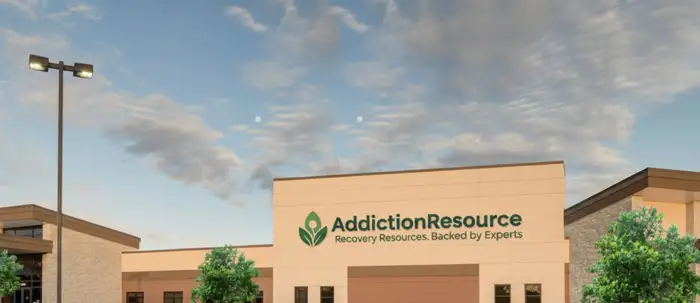Georgia is a state located in the southeastern United States. It has a significant geographic and demographic diversity, ranging from the mountainous regions in the north to the coastal plains in the south. The state’s economy is robust, driven by key industries such as agriculture, manufacturing, and a rapidly expanding tech sector centered in Atlanta.
As of 2023, Georgia’s population exceeds 10.7 million, with a rich blend of cultures and communities. The state is approximately 50% White, 33% African American, 10% Hispanic or Latino, and 4% Asian, reflecting a complex social fabric that both enriches the state and presents challenges in addressing public health issues like substance abuse.
Despite its economic strengths, Georgia faces significant challenges with substance abuse, particularly opioids and alcohol.
Table Of Contents:
Drug and Alcohol Abuse in Georgia
Georgia has been highly impacted by the increased number of people with substance abuse disorder, especially those consuming opioids and alcohol. In the last years, the state has seen a trend in opioid-related deaths, primarily driven by synthetic opioids like fentanyl.
In 2022, Georgia recorded an alarming 1,601 opioid-related deaths, marking a significant increase compared to previous years.
Alcohol abuse also remains a critical issue in Georgia, being this the most commonly abused substance in Georgia. In 2020, there were 61 alcohol-related deaths, a 10% increase from 2019. Alcohol consumption has led in the last years to a high number of rehab admissions and fatalities. In 2023, about 13,181 people were admitted to rehab centers across the state due to alcohol use disorder (AUD).
When talking about teenage substance use disorder, this group is not immune to these challenges, especially in Georgia. Approximately 7.7% of the state’s youth reported 2021 alcohol use in the past month, and 4.6% admitted to having used marijuana at least once.
Rehab Treatment Centers in Georgia
Georgia is home to many rehab centers that offer comprehensive care for individuals struggling with substance abuse disorder alone and substance abuse disorder plus mental health issues. These centers provide a variety of services, including inpatient and outpatient programs, medical detox, dual diagnosis treatment, and specialized care for different populations.
Inpatient Rehab in Georgia
According to the 2020 National Survey of Substance Abuse Treatment Services (N-SSATS) report, there are 106 inpatient rehab centers in Georgia. Offering essential services based on providing structured and intensive care for individuals dealing with substance use disorders.
About the average length of stay, it typically goes from 30 to 90 days, depending on the treatment needs of the individual.
Outpatient Rehab in Georgia
When talking about outpatient rehab treatment, Georgia offers around 449 rehab centers. These facilities provide a range of outpatient services, including regular outpatient treatment, intensive outpatient treatment, and partial hospitalization programs.
| Type of Treatment Facility | Number of Facilities | Location |
|---|---|---|
| Outpatient Rehab | 449 | Predominantly Urban |
| Inpatient Rehab | 106 | Predominantly Urban |
Alcohol Rehab in Georgia
In 2020, there were approximately 555 facilities across the state that offered specialized services for individuals struggling with alcohol use disorder (AUD). These facilities provide a range of treatment options, including both outpatient and inpatient care.
Most of the facilities for alcohol rehab, either inpatient or outpatient, are located in urban areas, which reflects the state’s population density and, at the same time, ensures better accessibility for the majority of residents. However, there are still options available in rural areas.
Mental Health and Co-occurring Disorders
Approximately 57% of patients in treatment across the state were diagnosed with co-occurring mental and substance use disorders. For this and other reasons, addressing mental health and co-occurring disorders is one of the key points of the state’s substance abuse treatment framework.
By 2020, numerous of the state’s treatment facilities were equipped to handle patients with dual diagnosis, which literally means that these facilities could provide services to individuals who struggle with both substance use disorders and mental health conditions.
Facilities offering these services employ integrated treatment approaches that address both the mental health issues and the substance use disorder simultaneously, recognizing that untreated mental health conditions can significantly hinder recovery efforts.
Rehab Prices in Georgia
The costs of rehab in Georgia can vary widely depending on the type of program and the level of care. Here are some of the average costs:
| Type of Rehab | Cost Range |
|---|---|
| Outpatient Rehab | $2,000 to $12,000 for a 30-day program |
| Inpatient Rehab | $8,000 to $25,000 for a 30-day program; long-term programs can range from $25,000 to $75,000 or more |
| Detoxification Only (Detox) | $1,500 to $7,000 for a 3- to 7-day program |
| Medication-Assisted Treatment (MAT) | $600 to $1,500 per month |
| Luxury Rehab | $35,000 to $120,000 or more for a 30-day program |
Insurance and Payment Options
Even when rehab treatment is expensive, some public policies have taken place in Georgia to make many facilities accept various forms of insurance, including private health insurance, Medicaid, and Medicare. These options significantly reduce some of the financial barriers to accessing necessary treatment, ensuring that more individuals can receive the care they need. Additionally, some facilities offer sliding fee scales or provide treatment at no charge for those who qualify based on financial need.
By 2020, the number of facilities accepting state-funded insurance was:
| Type of Payment | Number of Facilities |
|---|---|
| Medicare | 71 |
| Medicaid | 107 |
Best Rehab Centers in Georgia
Here is a list of the top-rated rehab centers in Georgia:
Drug Rehab in Georgia – Bottom Line
Georgia is a state that offers a wide comprehensive network of drug rehab centers, with diverse options ranging from inpatient to outpatient care. This state actively works to address the substance abuse disorder problem through a comprehensive framework.
Top facilities like Twin Lakes Recovery Center and MARR Addiction Treatment Center provide robust treatment programs and accept a range of insurance plans, including Medicare and Medicaid.
Frequently Asked Questions
What are the specialized rehab programs available in Georgia?
There are different types of specialized programs; however, here is an approximate of how many specialized facilities this state has:
- Adolescents: 135 facilities
- Young Adults: 155 Facilities
- Adult Women: 84 Facilities
- Pregnant or Post-partum Women: 84 Facilities
- Adult Men: 155 Facilities
- Seniors or Older Adults: 23 Facilities
- LGBTQ+ Individuals: 84 Facilities
- Veterans: 84 Facilities
Can I receive treatment for other health issues while in rehab in Georgia?
Many rehab centers in Georgia offer comprehensive care that includes the treatment of other health issues alongside addiction. This is particularly important for individuals with chronic health conditions or, as previously stated, with co-occurring mental health disorders. Offering a wide range of services helps in ensuring a holistic approach to recovery.
What should I look for when choosing a rehab center in Georgia?
When choosing a rehab center in Georgia -or in any other state- consider factors such as the types of treatment offered, the qualifications of the staff, the facility’s accreditation, and the types of insurance accepted. It’s also important to assess whether the center provides aftercare services and has a solid track record of success.
How do Georgia rehab centers handle relapse prevention?
Relapse prevention is a critical component of rehab, and it has been said that most people would relapse, so recovery is a long-term project. In Georgia, centers often include relapse prevention strategies as part of the treatment plan, which may involve education on coping mechanisms, support groups like 12-step programs, and ongoing counseling. Aftercare programs also play a vital role in maintaining long-term sobriety.
What is Georgia’s substance abuse framework?
Georgia’s substance abuse framework is a comprehensive system that integrates prevention, treatment, and recovery support services to address the challenges of substance use disorders. It includes a wide range of treatment options, such as inpatient and outpatient care, medication-assisted treatment, and specialized programs for vulnerable populations like veterans and those with dual diagnoses.
Hope Without Commitment
Find the best treatment options. Call our free and confidential helpline
Most private insurances accepted
Local Rehabs in Georgia
Page Sources
- USA facts: Economy of Georgia
- Census Bureau: Examining the Racial and Ethnic Diversity of Adults and Children
- NIDA: Drug Overdose Death Rates
- Office of the Attorney General: Opioid Abuse
- National Survey of Substance Abuse Treatment Services. (2021, July 14). https://www.samhsa.gov/data/data-we-collect/n-ssats-national-survey-substance-abuse-treatment-services
- Alcohol Abuse Statistics [2023]: National + State Data - NCDAS. (2024, May 2). NCDAS. https://drugabusestatistics.org/alcohol-abuse-statistics/
- National Library of Medicine: Services Available at United States Addiction Treatment Facilities That Offer Medications versus Behavioral Treatment Only: A Cross-Sectional, Observational Analysis
- Georgia Department of Behavioral Health and Developmental Disabilities: Alcohol & Substance Abuse Prevention Project (ASAP)
- NCDAS: Average Cost of Drug Rehab
- Georgia Department of Behavioral Health and Developmental Disabilities: Drug Treatment Programs










 FindTreatment.gov
FindTreatment.gov